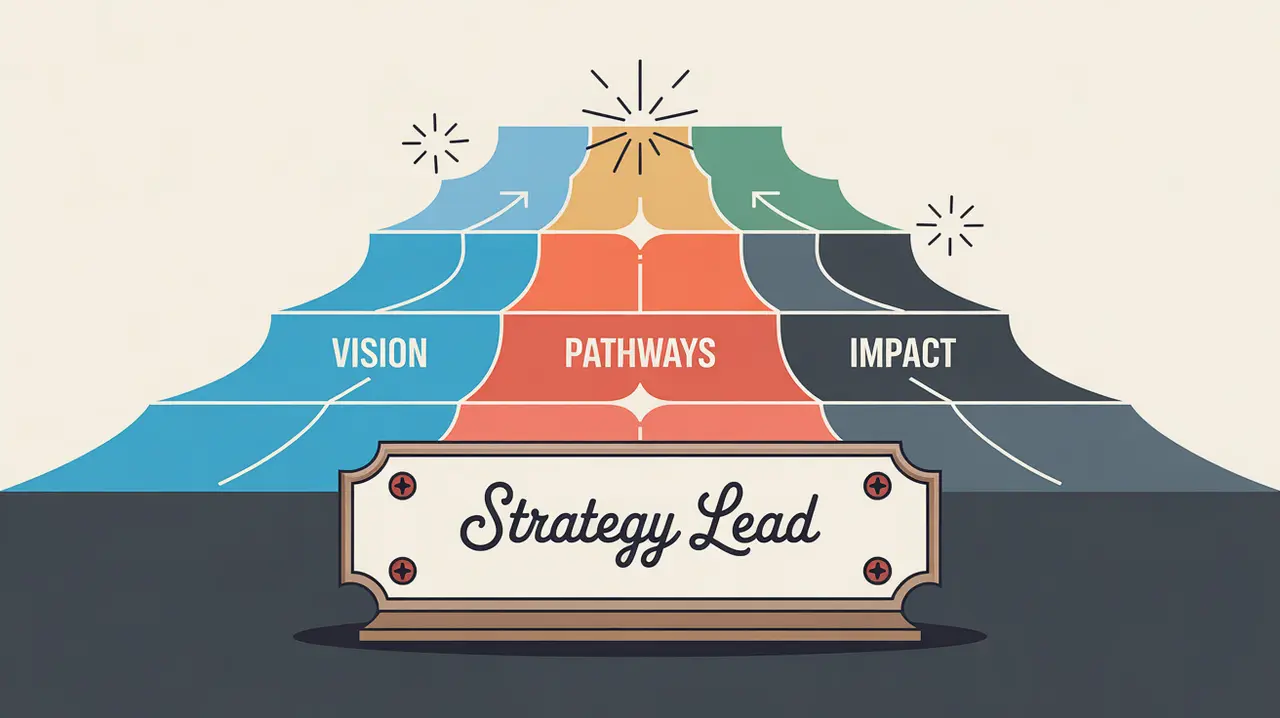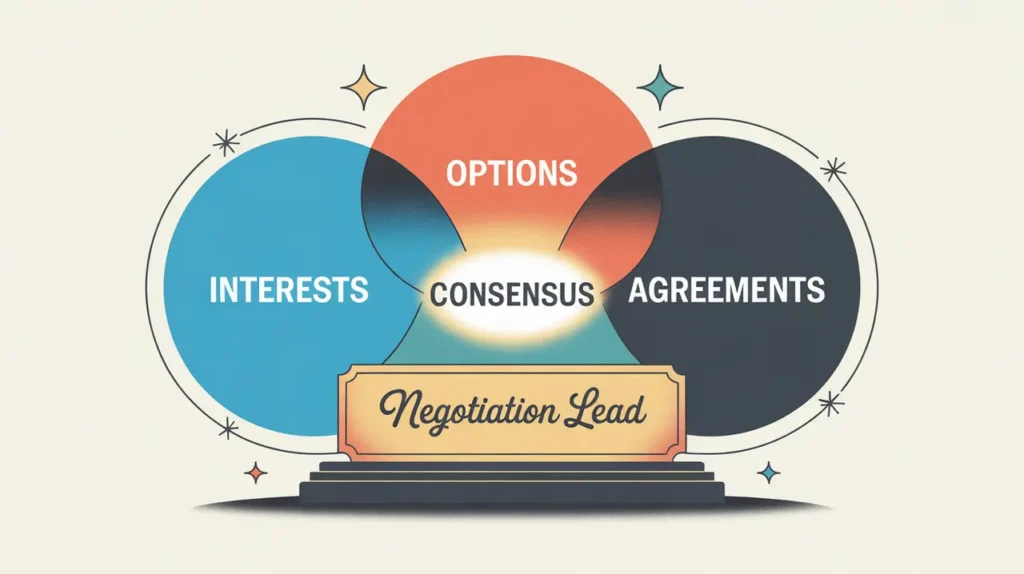What Does the Strategy Lead Role Involve?
A Strategy Lead is responsible for guiding the development, coordination, and implementation of organizational strategies. They translate leadership priorities into clear plans, frameworks, and initiatives, ensuring that strategic objectives are well defined, evidence-informed, and actionable. Their work involves managing strategic planning processes, conducting and overseeing analysis, aligning internal teams around shared goals, and monitoring progress toward organizational priorities.
In nonprofits and social enterprises, Strategy Leads play a critical role in helping organizations navigate complexity, make informed decisions, and adapt to changing environments while staying mission-aligned.
At What Level does this Role Operate?
Mid to Senior Level: Strategy Leads typically report to a Director of Strategy, Chief of Staff, Executive Director, or CEO. They operate with significant autonomy, often managing strategic projects that span multiple departments or geographies. Depending on organizational size, they may supervise analysts, assistants, or project managers supporting strategy execution.
Relative Employability: Strategy Lead roles are increasingly common in medium to large nonprofits, international NGOs, foundations, and social enterprises that have formal strategy functions. They are particularly relevant for organizations undergoing growth, transformation, or complex multi-stakeholder initiatives.
Relative Pay Scale: Strategy Leads generally occupy the upper mid to senior pay bands. Their compensation reflects their strategic responsibility, analytical expertise, and cross-organizational leadership role, often aligned with senior program or operations management positions.
What are the Key Responsibilities and Activities?
- Lead the development and refinement of organizational strategies and strategic plans
- Coordinate cross-functional strategic initiatives and ensure alignment with organizational goals
- Conduct and oversee research and analysis to inform strategic decision making
- Develop strategic frameworks, roadmaps, and implementation plans for leadership and board consideration
- Facilitate strategic planning sessions, retreats, and scenario planning exercises
- Translate high-level strategic priorities into actionable work plans with clear milestones and accountability structures
- Monitor progress on strategic initiatives, analyze performance data, and recommend course corrections
- Communicate strategy clearly across the organization, ensuring shared understanding and buy-in
- Supervise and mentor strategy team members, including analysts and assistants
What Core Competencies and Qualifications are Needed?
Required Qualifications and Experience
The following reflect common qualifications and experience expected for this role, while recognizing that pathways may vary by context, organization, and region.
- Relevant academic background in public policy, business, economics, international development, or related fields
- Significant experience in strategy, consulting, organizational planning, or leadership roles
- Proven ability to design and implement strategic frameworks and processes
- Strong analytical and problem-solving skills, including quantitative and qualitative methods
- Experience managing cross-functional teams and strategic initiatives
Key Competencies
- Strategic thinking and systems-level perspective
- Excellent analytical and research skills
- Strong communication and facilitation abilities across levels of the organization
- Leadership and team management capabilities
- Project management and execution skills
- Adaptability to changing organizational and external contexts
How are AI and Automation Shaping this Role?
An AI-native Strategy Lead can use AI to conduct rapid environmental scans, model strategic scenarios, and synthesize data from multiple sources. AI tools can support decision making through predictive analytics, automate reporting on strategic progress, and generate insights that inform prioritization. This enables Strategy Leads to focus more on facilitation, alignment, and strategic judgment.
What Career Pathways and Transferable Skills are Associated with this Role?
Strategy Leads can progress to roles such as Director of Strategy, Chief of Staff, Chief Strategy Officer, or Executive Director. Their expertise in strategic planning, cross-functional leadership, and systems thinking is transferable to senior roles in program strategy, operations, policy, and organizational leadership. Over time, they may shape institutional direction at the highest levels, lead multi-organization strategic initiatives, or guide complex transformations across sectors.







